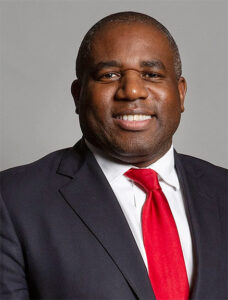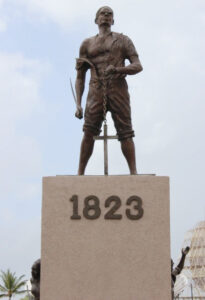
Shadow Overseas Secretary of the United Kingdom, David Lammy has written to the Boris Johnson Government asking it to pardon 70 abolitionists convicted for their role in the historic 1823 Demerara rebellion by enslaved people against British colonialists in the Caribbean.
The shadow foreign secretary described the revolt, involving 10,000 enslaved people, as a “seminal moment” in the history of slave resistance. Although unsuccessful at the time, the event contributed to the abolition of slavery 10 years later, in 1833.
Lammy said exercising the royal prerogative of mercy to grant pardons to those involved in the uprising, which was brutally crushed by the colonial militia in part of present-day Guyana, would be “a significant step in Britain’s acknowledgment of its role in the history of slavery”.
The letter names 73 people who were tried, 70 of whom were found guilty, including 21 who were executed, including 10 who were decapitated after being hanged and had their heads put on poles. Hundreds of others were killed during and in the immediate aftermath of the uprising.
It was known for the harsh treatment of enslaved people. Photograph: John Carter Brown Library Lammy highlights two particular cases, that of Jack Gladstone, a slave who was the principal organiser of the uprising, and John Smith, a young British Protestant minister, both of whom were sentenced to death before having their sentences commuted. Gladstone, who was “owned” by John Gladstone, the father of the future prime minister William Gladstone, was not violent, according to testimonies – and also intervened to prevent other acts of violence. After his death sentence was commuted he was transported to St Lucia for hard labour.
Smith had his sentence commuted by King George IV but died in prison in 1824 before the decision was communicated to Demerara. A two-day debate on whether to pardon him posthumously took place in parliament in June of that year, but the motion was defeated.
In the letter, addressed to the justice secretary, Dominic Raab, Lammy wrote: “In recent years, this country has entered into a discussion about its colonial history and the path to repair. The full pardoning of both John Smith and Jack Gladstone would be a significant step in Britain’s acknowledgment of its role in the history of slavery. Both John Smith and Jack Gladstone were pioneers of the abolition movement, and they must be remembered and celebrated as such. It is for this reason that I am requesting a pardon through the exercise of the royal prerogative of mercy.”

Demerara was one of Britain’s most lucrative colonies, being rich in sugar plantations at a time when the British economy was heavily dependent on the crop. It was known for the harsh treatment of enslaved people, designed to discourage them from rebelling against the white colonialists they heavily outnumbered. Lammy, who has spoken previously about the legacy of slavery and its impact on black Britons, based the letter on research into the Demerara uprising contained in the book White Debt. In a reply from Raab sent to Lammy, the justice secretary said that following Guyana gaining independence in 1966 and the country becoming a republic in 1970, it would be for the president of Guyana to grant such pardons.
The men and women who took part in the Demerara uprising of 1823 were attempting to abolish British slavery. It was a British court martial which found the 70 people guilty, a court established by a British governor in a British colony (later known as ‘British Guiana’), on behalf of the British king, under British military code.
“Now is the time for the British government to take full responsibly for its legacy of slavery, to pardon the ‘Demerara 70’ and recognise them for what they were: heroes, for all of us.” … we have a small favour to ask. Millions are turning to the Guardian for open, independent, quality news every day, and readers in 180 countries around the world now support us financially.
We believe everyone deserves access to information that’s grounded in science and truth, and analysis rooted in authority and integrity. That’s why we made a different choice: to keep our reporting open for all readers, regardless of where they live or what they can afford to pay.”


